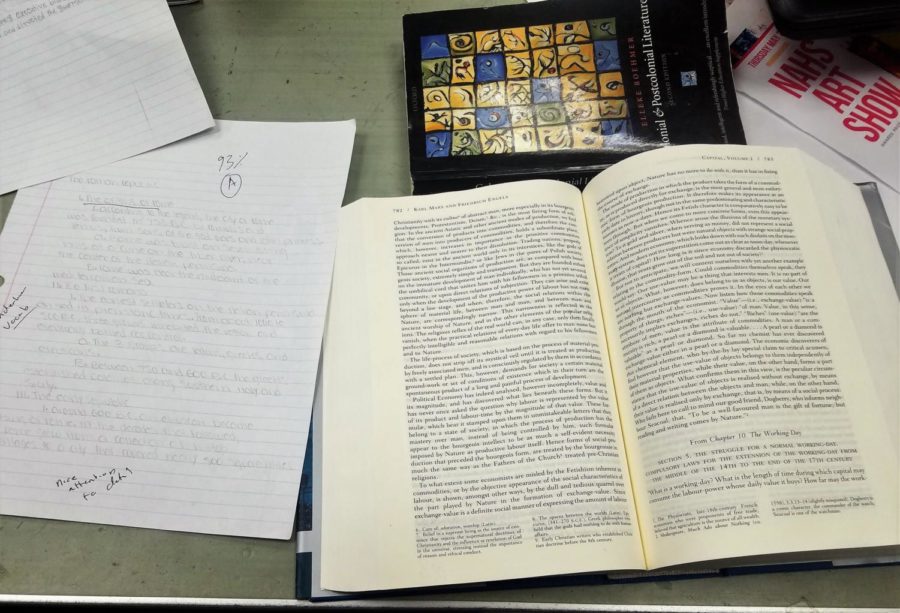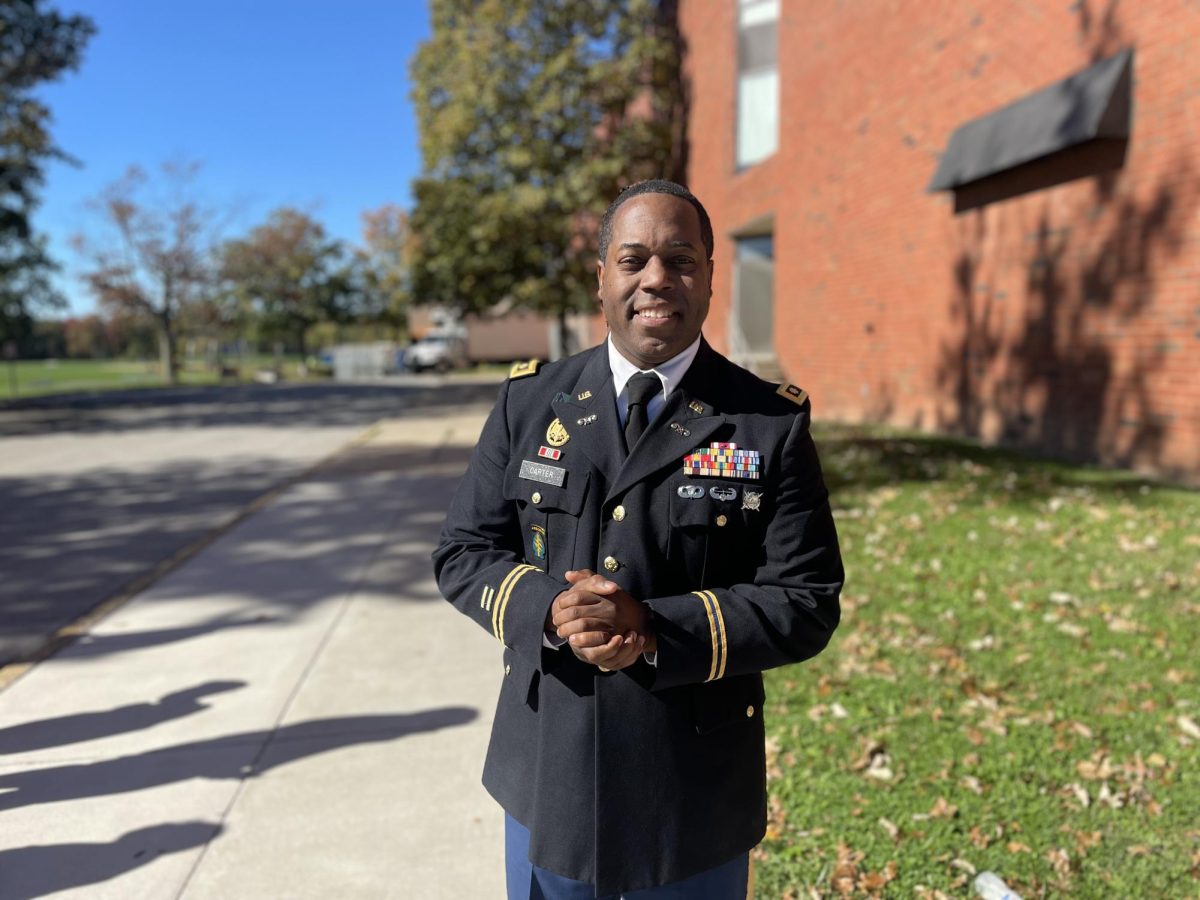Teachers Further their Careers Taking After-School Classes
Teachers often balance grading their students’ work with keeping up with their own work for Masters’ classes outside of school.
May 31, 2019
It’s 8th period. The clock is ticking down to the last minute, and all you can think about is getting on that yellow bus. All you want to do is go home, but you may not realize that your teachers can’t go home to their husband or wife and kids. Your teachers may have after-school plans, but it isn’t what you think; they actually go to college classes to further their degree.
“You never stop learning and being taught,” said Anthony Ciarlello, an English as a second language (ESL) teacher at NAHS. Ciarello stated that when you’re a teacher, you are always learning something new and you never stop going to school.
Ciarlello attended Ursinus College for his undergraduate degree in education. He wanted to be a coach in life and and he wanted to help kids. “The only way to do that and become successful was to become a teacher,” Ciarlello said. After graduating, he took about ten years off and then attended Saint Joseph’s University for his first Master’s and Holy Family University for his 2nd degree.
Ciarlello states that his class that he teaches at NAHS runs like a regular ESL class: they focus on grammar and read short stories.
Ciarlello used to take summer courses during the night, also taking an online course previously. When he took classes at Holy Family University, the first couple classes he attended were met face-to-face, but he states that it was only twice during the whole 8 week course. Along with face-to-face classes, there were some in which Ciarlello had to do group assignments online.
Ciarlello was very grateful with these online classes because he was allowed to work at his own pace and do the work whenever he had time just as long as he made the deadlines. He also stated that he had some very long nights staying up and trying to get the work done, especially with the group assignments.
Another teacher who takes classes after school is Laura Mardinly, a Special Education teacher who also teaches English for 11th and 12th graders. She attended West Chester for her undergrad and went undecided for her major. “I had a couple of friends who were majoring in education and it seemed like I would like it,” she said. “Then I declared my major just in time for my sophomore year in college”. She actually started taking Elementary and Special Ed classes her sophomore year.
She recently finished her courses outside of school in July of 2017 as it was a two-year program and got her Master’s in Education with Principal certification through Cabrini University. She wanted to further her education, and thought it was interesting to earn her Principal certification.
Every Wednesday, she had to go to class from 4:30pm until 9:30pm, and sometimes it even went a little bit over. She took just over 30 credits worth of classes and it was about 3 credits per class, but she did internship hours that were worth credits as well.
“As a Special Ed teacher, I have a lot of meetings with parent”, she said.”I would say going to class boosted my confidence at those meetings and having those classes also helped me see the administration side of our building”.
Meredith Pileggi, who teaches 10th grade English II at NAHS, wanted to further her education and further her degree. She attended Temple University and then got her first Master’s through La Salle, which was online, but she is currently taking classes online at Southern New Hampshire University. She feels as though if she takes a break in between classes, she may never start them back up again. Pileggi already has her Master’s degree in Education, but since she teaches English, she wanted a Master’s in Literature.
Her classes are all online, and she does work for them everyday. “I never stopped taking these classes since I graduated with my undergrad,” she said. She also states that the good thing about her classes is that they vary with people throughout the country. “I feel like it’s important to learn as much as you can, so I’m prepared. I like to be prepared”. She takes classes about literature from all over the world, reading European, African-American, Early and Late American Literature, and an assortment more. “You are reading a broad variety,” she emphasized.
Pileggi usually has a week’s span to complete 100 or so pages of reading, three discussion board posts and essays ranging from whatever amount of pages you have to write based on what your instructor tells you. Pileggi only takes one class at a time due to so many hours she is on a week and how much time she may have.
Dr. Jessica Kirker, a teacher who teaches many classes within the art department, has her PhD, which took her 6 years, and she also teaches classes at Temple. She started teaching at Temple about 2 years ago and teaches every Tuesday from 4:30pm to 7pm. She states that it is definitely a struggle with kids and a husband at home. It’s also a far drive, but in her words, “I love it.” She teaches an Internship Class, so when college students go for an Internship, they are prepared.
Kirker used to take classes to further her degree. She got her first Master’s through Temple and also went to Penn State. She has another Master’s in Administration at Gwynedd Mercy University “just to see if I wanted to do administration.” She then realized later that Administration just wasn’t her thing.
“I was bored again, and that’s when I got my PhD at Penn State,” she said. “I enjoy the chance to bring a pragmatic lens to my theoretical content.”
Many people don’t realize that teachers actually go to school themselves. It may not be the school that we go to, but they go and get taught by other people to further themselves in their career. Taking night classes affects some teachers’ lives because they want to teach and learn more about what they love and share those experiences with their students. It takes hard work and dedication, but they do it to share their knowledge and teach students so their students can be successful in life as well.



